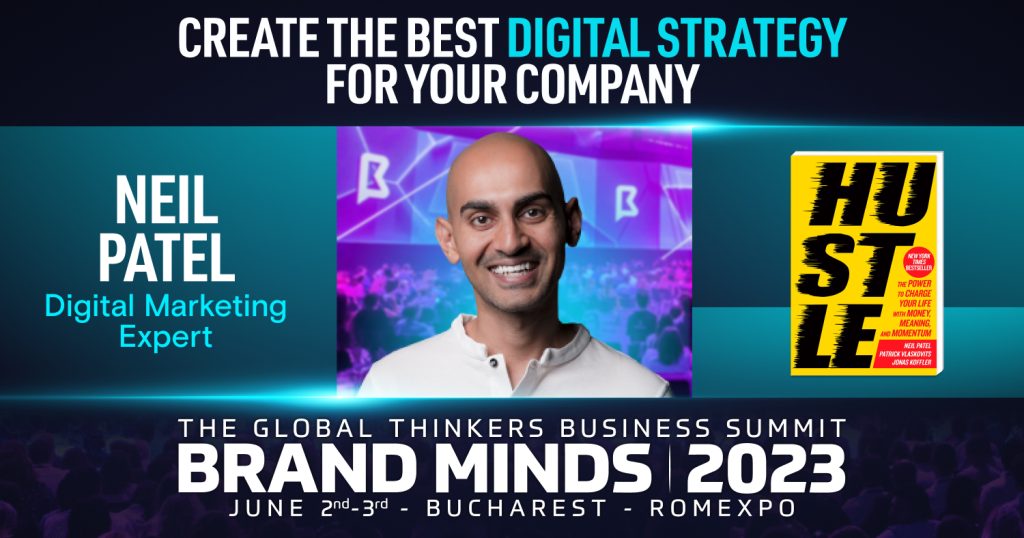How to evaluate a startup company for investment – 5 tips
If you are an investor looking for a startup company to invest in, this article is for you.
It is no secret that investors have a hard time finding good investments. With large sums at stake and a constantly shifting market, investors that do not try their best to avoid miscalculations will experience a loss of capital. Beyond the initial difficulty of finding a credible source of startups to invest in and how to go about it, the biggest question investors ask themselves is “how do I know this investment is right?”.
Indeed, how does anyone know if their decision is the right one or not? There are certain indicators that allow seasoned investors to avoid making such costly errors. While some investors simply follow their gut, the majority are certainly much keener to do (extensive) research before making any decision.
Blindly trusting what is presented to you when it comes to investments is, to say the least, unwise, especially when considering that up to 90% of startups fail, and of those that do succeed, many take a long time to see profit. For most investors, this small and far-off goal does not produce significant enough ROI to mitigate the risks involved in the first place.
As such, investors need to be completely sure before they make the investment.
The question of how to evaluate these startups
Fortunately for you, there are several ways in which this can be done. Don’t be afraid to ask your prospective the tough questions, remember, it is your money on the line. Startups require capital, and as competition for investors is cut-throat, they are willing to provide all the information an investor may need.
Following these 5 tips could be the difference between making money and losing what you thought was a sure-shot investment.
1. The Founding Team
The world’s best investment companies are the ones that are extremely selective in the startups they invest in. Those chosen startups have only attained such investment through the perseverance of a strong team. A strong founding team is the first thing an investor should look at when considering a startup.

The leadership of a startup forms the culture, discipline and work ethic of that venture. While a new or innovative concept will be necessary to win over customers, it cannot be denied that the hard work of the founding team directly correlates with the success of the firm. The way the idea or business model grows and develops depends on the core team that starts it all.
As an investor, you have to look for the passion of the team as much as the integrity of the project. Teamwork is also an important factor determining how well the startup functions. Beyond this, how experienced are the founders? Are they new to business in general, or have they already owned or operated successful businesses? This is a qualitative measure of how likely a startup is going to be successful before they have even launched.
2. The overall returns on the investment

During pitch presentations, make sure you ask the startups for accurate projections of annual revenues and profits, implying the kind of return on investment (ROI) you can expect. Many startups are unrealistic about their expected returns because they are trying to please potential investors.
Instead, make sure to do your research and request the company’s previous balance statements. You’ll be able to catch all the overpromises they have made due to inexperience easily.
Investors, however, should not let a lower ROI be the reason they reject a startup, as this must be judged on a case by case basis. A pragmatic approach means that the ROI you are presented with will be closer to the one you receive. As an investor, you also accept that even for a successful startup, ROI starts out small and grows gradually over time. If spent correctly, the investment will allow the startup to expand, leading to greater returns in the long run.
3. The competitive advantage of the investment
Investors often worry about the idea that a startup has immense competition in the market. They often forget that this means the startup has potential as they have tapped a potential market segment. On the other end, other investors also tend to look out for promising startups so they could get their hands on them first.

Competition to invest in a startup only raises its credibility as a desirable investment opportunity. Since startups sign a contract for a set number of years, the investors would benefit from them until the contract is renewed or turns void.
A venture should not be avoided just because a high degree of competition restricts its entry into the market. Instead, investors should have a more flexible approach, and potentially allow new ventures the chance to carve their own paths. Several companies have risen to prominence by virtue of the fact that their investors had faith in the company’s capability.
4. Market momentum and demand
The product’s position in the market is a strong indicator for investors. Companies have to build a certain momentum within the market in order to attract investors. This momentum can be crucial because it helps drive the company to the next level.
The job of an investor is to determine whether the next level is achievable with their help. If achieved, the company will not only evolve and produce substantial ROI for the investor but establish itself in the market. If however, the company fails to do this, the investor might lose out because of a bad deal.
Check the overall growth of the company and how it has built itself to the point that its founders are pitching to you.
Check through past financial reports and even ask for profit and loss statements to see overall growth.
The kind of momentum built in the market is itself a key performance indicator of how well the company is to perform in the years to come.

5. Business mission and values
The mission is the one thing that the investor cannot change. For an investor, it is the mission of the company that can make the final decision. Some investors can be so impressed by a venture’s mission that they may go with the investment blindly, yet these are rare exceptions and is in general not recommended.

The mission the venture puts forward will also inform the culture of the startup. The investor, therefore, has to determine whether the mission aligns with their beliefs. Startups usually describe their mission in their pitch, though if they fail to do so, ask. Failing to mention the business mission is one of the most common mistakes made by rookie startup CEOs, and it is important when making your decision.
The way they speak about it speaks to the emotional value the company’s owners stake in their business. An entrepreneur who is highly emotionally attached to the mission is likely to devote more of their time and energy to the project, and this should be considered when determining whether the startup is worth taking the risk for.
Be aware, however, that a passionate entrepreneur can also be a stubborn one. Make sure the culture of the startup is in line with your own belief system. Having clashes after the deal is done can prove to be harmful to both parties.
[bctt tweet=”Taylor Ryan (CEO@Klint Marketing) writes about 5 tips on how to evaluate a startup company for investment” username=”brand_minds”]
Why invest in a startup?
Startups are full of energy and potential that can greatly benefit from a little injection of money. Investors often look for promising startups in schools, competitions and online because they recognize the kind of potential they have to drive change in the market. They are capable of disruptive innovation, thereby changing the overall landscape of the market, as Apple once did.
Investors are always on the lookout for promising entrepreneurs with their own companies who display the kind of leadership qualities that can create success. Startups are also a great way of investing in something with the potential for huge returns.
Key Takeaways
- Is the founding team strong?;
- Look for the passion of the team as much as the integrity of the project;
- Request the company’s previous balance statements;
- Judge a lower ROI on a case by case basis;
- A startup with competition in the market means they have tapped a potential market segment;
- Determine whether the startup’s next level is achievable with your help;
- Check the overall growth of the company;
- The kind of momentum built in the market is itself a key performance indicator;
- What is their mission?
- The mission will also inform the culture of the startup;
- Does the founding team have an emotional stake in their business?
Conclusion
Evaluation of a startup is a necessity, as you can never be sure what the startup will bring to their pitch. The business can thrive with the investors help or equally drown in debt in a few years. No matter what happens, an investment is never 100% guaranteed. An investor is always gambling on whether or not an investment will work out.
Investing in startups might not see an immediate ROI, but can be extremely profitable in the long-run. Some of the greatest investors of all time started by investing in small startups that at that time were only worth a couple of hundred dollars. Now, companies like Apple, KFC and even Google are worth a million times more than their initial evaluations.
In time, the kind of qualities that you evaluate the company on will reap the fruits you deserve. The rest requires patience and hope that whatever happens, happens for the better.
Join the Conversation
We’d love to hear what you have to say.
Get in touch with us on Facebook Group and Twitter.
5 pieces of advice for entrepreneurs in 2018, the international PR agency point of view
PR has become indispensable for companies nowadays, evolving from “simple” media relations activities to strategy,consultancy and more and more diverse services. Moreover, it’s obvious that it needs to be part of the whole communication process and in close relationship with marketing and sales, being one of the business’ best driving forces. Raluca Ene, Managing Director Chapter 4 Romania offers 5 important pieces of advice for entrepreneurs in 2018, to take home about how to tell the world about your entrepreneurial endeavor:

Know your WHY – there is nothing more important for a successful communication effort than being crystal clear not only on what you do and for whom, but why you’re doing it. The single most important thing that would transmit directly to your potential customers is your motivation and drive.
Know your customer inside out, especially where your customer takes his/her information from – build personas, as they should do the trick and reveal the channels your customers use (media, social media, blogs, events etc.). Gather information about the respective channels. Don’t be afraid of words such as virtual reality or artificial intelligence – see what’s there, don’t dismiss anything by default.
Be honest about the resources you are ready to spend on communication – I know, it’s rather annoying to learn something you know is necessary for the growth of your business, but not your cup of tea at all. Nevertheless, if you want to make your business work, you have to be efficient, and that should go first.
If you are just starting up or in the first stage of developing the business, maybe it would be better to consider choosing a seasoned communication consultant, pay a one-time fee for a professional advice and guidance and assume the implementation yourself rather than paying an internal specialist or an agency retainer. Go to marketing & communication events for entrepreneurs, there are quite a few available these days, and some of them are quite good. Once you start having a steady profit, hiring a professional team would definitely free your time to dedicate to your business.
Invest wisely – make your dollar count and choose to invest in the channel with the most exposure to your core target. Take into consideration building your own space for telling your story (e.g. website, blog, YouTube channel) before deciding where to promote it. Specialists might give you different kinds of advice – ask for as many arguments as possible and listen carefully, but make your own decision. Your entrepreneurial guts matter more than you think, listen to it.
You are the best ambassador of your business, use yourself! Even the shiest of entrepreneurs lighten up and become energetic and passionate when it comes to their own creation, therefore put yourself to good use and go out there: talk about your business, go to events, ask questions (especially to more seasoned entrepreneurs that went successfully through the phase you are now), be there. It will pay off, and then some.
No product or service would sell without people finding out about their existence first (and yes, word of mouth is a communication channel as well J), so why not embrace it and make room in your agenda for communication – there are plenty of resources to inspire and help you around.
Meet Joe Escobedo, One of Singapore’s Brand Minds
Recognized as one of the “Top 20 Content Marketers” worldwide and awarded the “Most Influential Global Marketing Leader” at the World Marketing Congress, Joe has helped countless organizations and executives transform from relative unknowns to superheroes online. He has also created and led successful digital marketing, branding and PR campaigns for both startups and Fortune 500 firms. He is a contributor for both Forbes and the HuffPost, as well as an award-winning speaker. His articles, interviews and talks have been read or heard by nearly one million people.
What is the significance of Joe Escobedo “The Brand Builder” and what is the story behind it?
“The Brand Builder” is a moniker given to me by my colleagues when we were trying to create ‘superhero’ names for the team.
You worked with companies from U.S., China and Singapore, which market did you like the most and why so?
The safe answer would be Singapore, but my five years in the gauntlet known as China made me what I am today. It taught me humility and the importance of guanxi (relationships).
Name one situation that made you want to quit and change your career.
I want to learn something everyday so there were times in my career where I felt like I wasn’t learning anything new or pushing myself hard enough. It’s during those times that I’ve transitioned to a completely new field or market. Sometimes I’ve failed miserably, but I learned from each experience and have grown from it.
Name one situation that made you want to go forward.
I’m driven when people tell me I can’t do something. I’ve been told that more times than I can count throughout my career. During those times, I think in my head, “hold on a second and watch this!”
What do you think are the most difficult challenges marketeers have to face in Asian markets nowadays?
Taking a long-term view. Too often, global headquarters look to the regional office in Asia and say, “You’re our growth engine now so you should be growing at a double-digit rate.” The problem with that is that it forces marketers to look only at the month ahead, rather than what’s going to rise up and disrupt their industry next year.
Investment matters. If you would invest in one particular business field nowadays. What would that be?
If I were looking for some quick cash, I’d say anything A.I. related. But I generally play the long game so I’d invest in things people always need, like food and toilet paper.
If you could change something about Singapore’s marketing community to improve it in any way what would that be?
I’d encourage the Community to take risks and invest more in digital. An ad plastered over the MRT may look great but what’s the return on your investment?
What made you settle down in Singapore?
The short answer: love. I followed my wife who received a job offer before I did.
Meet Joe Escobedo, The Man behind the suit
Name one good habit that helps you deal with your active life.
Reading to my daughter, because in that moment, I’m not Joe “The Brand Builder.” I’m whichever character I’m reading in the book.
Name one bad habit you can’t quit.
Speed walking. I tend to walk like I’m always 15 minutes late to a meeting.
If you could be anything else but a marketing leader, what would you be?
In another life, I would’ve been a film director. I wrote, directed and edited a sketch comedy movie when I was in college. I loved the experience and think I could’ve been a third-rate Christopher Nolan.
You are recognized as “One of the Most Influential Global Marketing Leaders”. What’s your favorite movie of a global marketing leader?
Don’t know if it’s about a global marketing leader per se, but Game of Thrones. After over a decade as a marketer, I see too many similarities between that show and the marketing world, albeit slightly less violent. For instances, strong alliances with the “right” groups can help you get closer to the corporate Iron Throne.
Tell us your favorite book. What’s the best thing you learned from it?
“How To Win Friends & Influence People,” by Dale Carnegie. I’ve read the book at least 10 times and everytime I ‘learn’ something new. My favorite lesson is about putting yourself in the other’s shoes – thinking about what they would want rather than what you’d want them to do.
Name the most important value you have.
Grit. It’s the only reason I’m still around and kickin’ in the professional world. Because even when I get battered to the ground, I claw my way back up. It’s an invaluable trait for any marketer or entrepreneur.
Name the most important value a leader should have.
Empathy. Every boss wants to make the most profit they can but they can only do so with a strong team behind them. And the only way to build and retain a strong team is to empathize with your staff’s situation. If they get demotivated because a client scolded them, then give them a pep talk. If there are unseen circumstances that caused them to miss a deadline then be understanding to their situation.
If you could compare your journey as an entrepreneur with a song, what song would you choose?
“Highway To Hell.” Just kidding! Instead of a song, my journey can be best described by “The Road Not Taken” by Robert Frost. From my move to China when I was 22, my career has been characterized by these lines: “Two roads diverged in a wood, and I— I took the one less traveled by, and that has made all the difference.”
Tell us the funniest experience you had this year related to your work.
Some of the funniest moments during the past year happen behind-the-scenes. For instance, we use to have “Happy Friday” dance parties at my company. And I’m not one to brag but my rendition of “Hotline Bling” by Drake stole the show.
If you would give our readers one advice from your professional experience, what would that advice be?
To quote the great Conan O’Brien, “If you work really hard, and you’re kind, amazing things will happen.” I truly believe that. Because everyone wants to help the hardworking nice guy or gal.
What is your biggest expectation for the Brand Minds ASIA event?
I’m looking forward to seeing Gary V walk on stage to a deafening cheer, unleash some savage knowledge and drop the mic.
Top 20 business people to watch for in 2017
Each one of us needs to be inspired, to meet and read about inspirational people and success stories that truly show us that the sky is the limit. We compiled of list of great entrepreneurs, social media influencers, both men and women, that we believe deserve a look over their careers so far and that will still be a great inspiration in the years to come.
Neil Patel – an internet marketer and conversion expert, best known as the founder of Crazy Egg, Quick Sprout, and KISSMetrics. Recognized as a top 100 entrepreneur under the age of 30 by President Obama, Patel is also a regular, respected contributor for publications such as Inc., Fast Company, Forbes, Entrepreneur.com and TechCrunch. He helps companies like Amazon, NBC, GM, HP and Viacom grow their revenue.
John Rampton is a serial entrepreneur, connector, and the founder of Due.com. Rampton has hailed as No. 3 of the Top 50 Global Online Influencers and one of the Top 10 Most Influential PPC Experts in the World for 3 years running. Time Magazine recognized John as a motivations speaker that helps people find a “Sense of Meaning” in their lives. He currently advises several companies in the bay area. John loves helping others succeed online. It’s all about helping and giving back. It brings me joy in my life.
Chris Stoikos is best known for his hilarious viral videos, which generated 130M views and $10.5M in sales in the past year alone as part of his venture Dollar Beard Club. Stoikos has also appeared on NBC’s Shark Tank and generated millions in revenue for various product launches. is a highly regarded serial entrepreneur with two successful exits under his belt. He is an expert at creating and organizing dynamic teams that can execute business ideas quickly and effectively, and set them up to be self-sustaining organizations.
Ann Handley has been named by “Forbes” as the “Most Influential Woman in Social Media” and one of the Top 20 Women Bloggers. She is the chief content officer of MarketingProfs, a training company that empowers marketers internationally with the skills they need to drive success at their companies, and her book “Everybody Writes” is a Wall Street Journal bestseller. She is also the co-author of the best-selling book on content marketing, “Content Rules: How to Create Killer Blogs, Podcasts, Videos, Ebooks, Webinars (and More) That Engage Customers and Ignite Your Business.”
Moreover, a pioneer in digital marketing, Ann is the co-founder of ClickZ.com, which was one of the first sources of digital marketing news and commentary.
Shradha Agarwal co-started Context Media with a goal to help patients with chronic diseases better manage their health. She is now reaching more that 6+ million patients a month. Shradha co-founded JumpStart Ventures in 2011 to fund other passionate entrepreneurs who are executing ambitious solutions in healthcare, education and media communications, and has since backed more than 40 companies with over $10 million in venture investments. She mentors entrepreneurs at Techstars, Impact Engine & Blueprint Health, but is equally invested in the venture philanthropy model for scaling nonprofit solutions through SVP Chicago and The Chicago Public Education Fund. She serves on the boards of OneGoal and Chicago Children’s Choir and spiritedly supports youth education, women leadership, and civic engagement. The CEC recently honored the two ContextMedia co-founders with the “2015 Chicagoness Award” for their deep commitment to developing the city’s ecosystem. Agarwal was honored as a Champion of Change by the White House, recognized as Best Female Founder at the United Nations, and won a Moxie Award as “Tech Woman of the Year” in Chicago.
Anthony Smith is Founder and CEO of Insightly, a San Francisco-based company that provides customer relationship management (CRM) cloud-based software to more than 1.2 million customers in 200 countries. After identifying a market need for a CRM solution for small businesses, Anthony built the first version of Insightly himself, using his previous experience of designing, constructing, and implementing CRM software for enterprises.
Julia Taylor Cheek isn’t new to business, but the Harvard Business grad’s new company is literally changing the way we live. Cheek’s company, EverlyWell (of which she is both co-founder and CEO) is simplifying health testing and putting it into words and charts that everybody can understand.
Branden Hampton is the king of social media, having built over 33M followers across Instagram, Twitter and Facebook. He’s also the CEO of the social media marketing company One Penny Ad Agency and co-author of “ How to Set Up Your Business for Under $1000”.
Brian D. Evans is an Inc 500 entrepreneur and the founder and CEO of Influencive, an online publication read by millions of young entrepreneurs. His company, BDE Ventures had 2,388% growth in 3 years and was the 25th fastest growing advertising and marketing agency in America.
Ekta Sahasi is the vice president of the U.S .Business Innovation Center (BIC) for Konica Minolta, where her team seeks out new places to invest in disruptive technology that can advance the company’s competitive advantage. When not investing in startups and overseeing innovation at Konica Minolta, Sahasi helps startups understand how they can enter Asian markets and work within those cultural parameters. Prior to joining Konica Minolta, Ekta spent 10 years at eBay Inc. where she co-founded and led both eBay and PayPal’s Research and Innovation Labs. She successfully developed one of the largest corporate innovation programs, and experimented with emerging technologies for enhancing existing technology stack and M&A. As Director of Innovation Products and Research at PayPal she built and scaled a global cross-functional team and led the strategic vision and execution of high-impact projects.
Russ Ruffino: Founder and CEO of Clients on Demand, the most reliable client attraction system in the world, Ruffino has helped coaches and thought leaders all over the world build six-figure monthly businesses from scratch. His massive success in marketing and as a business owner has allowed him to become one of the most respected business coaches in the industry.
Pejman Ghadimi is a self-made multi-millionaire, serial entrepreneur, best-selling book author and currently the CEO and Founder of Secret Entourage. The platform was started in 2009 to help bring together some of today’s greatest and brightest CEO’s, business owners and innovators in an attempt to help bridge the gap between formal and self-education by providing current, relevant, as well as affordable coaching and mentorship. Secret Entourage presently is home to over 280 accredited entrepreneurs covering more than 100 industries, over 30,000 students and reaches millions through social media. Since its launch, Secret Entourage has expanded its reach to over 1,200,000 new individuals each month and has grown as an accepted brand in the business and lifestyle community. The organization has to date aided tens of thousands of individuals and organizations in reaching their full potential. Secret Entourage has also helped unify accredited Entrepreneurs with the mission of bringing back the true meaning of entrepreneurship, and to be an inspiration to all. In 2012, Pejman authored Third Circle Theory, Gen Y’s blueprint to Entrepreneurship which had sold over 50,000 copies by mid 2013.
Pejman is also the owner and founder of VIPMotoring.net, a unique luxury lifestyle concierge service which currently was said to be “one of the best sources of education for today’s modern millionaires” by Forbes in 2012.
Roger Bryan is a serial entrepreneur with two successful exits: a marketing agency and an ecommerce business. His current venture, Enfusen, named a Top 10 Tool Entrepreneurs Can Use to Automate Their Business by Inc., is a machine-learning analytics platform that helps digital marketing agencies drive increased traffic and conversion for their clients.
Sam Ovens: Ovens has told the story how he started completely broke, working out of his parents’ garage in New Zealand, and in five short years, started a consulting business, moved to New York and made over $20 million. Ovens helps everyday people quit their jobs and “job-like” businesses to start their own highly leveraged consulting business. His methods are shaking up the consulting industry. Since 2011 he has created 14 millionaires and 340 six-figure earners with his training programs.
John Sculley and David Steinberg, ZetaGlobal – Former Apple and Pepsi CEO John Sculley and David Steinberg have become darlings of the marketing tech world, creating a business that provides analytics-driven platform that can also both see the customer’s life-cycle, measure ROI and understand your audience for intelligent marketing across the board. The company remains profitable, and made over $300 million in revenue the last year. Considering the cutthroat nature of the business, marketing tech leaders should pay real attention to Sculley and Steinberg as Zeta continues to grow.
Raviv Turner, CaliberMind, is a serial tech entrepreneur and former Israeli intelligence of CaliberMind, stands out. The company plugs into your CRM and content pipeline and uses psychographic ( a huge secret weapon in marketing) profiling of your sales and marketing calls, emails and customers’ social feeds to intelligently inform you both how to communicate with them and what content to feed them, such as security content for a security-minded person.
Amanda Signorelli, CEO of Techweek, is building tech-based entrepreneurial communities in major cities across North America, helping local business break through.
Danielle Morrill, CEO and co-founder of Mattermark, is improving the way that businesses find and connect with the ideal customers, simplifying the process of finding leads for businesses of all sizes. Small businesses will want to keep Morrill’s company on their radar in 2017.
Natalya Brikner – Founder and CEO of Accion Systems Inc., brings her MIT rocket science knowledge and experience to help push space-travel forward – all before the age of 30.
Tips & tricks on how to create a successful video campaign on Facebook
Today is all about finding your vision and place on the market and targeting it the right way. Specific messages are created and translated in a specific way, for each media in part. What works for YouTube may very well not work on Facebook or cinema. Even if we talk about the same brand, campaign, positioning and target. So how does one create a powerful and successful video for Facebook, in order to really help the brand?

According to kissmetrics.com, over three billion videos are watched on Facebook daily. Video is eye-catching and engaging and, when used properly, is a great way to bring life to a product or brand. The website editors identified 4 main rules that you can find here. (credit photo: Shutterstock)
As Facebook says, while video continues to grow as a storytelling medium for people and brands, it has been working with hundreds of businesses on building and analyzing video ads to discover what makes great video creative. What they found was that, like advertising of all kinds, building effective video ad creative requires both art and science.
Some rules that would anyone help create a good Facebook video are:
- Tailor your story to your audience.
People are more likely to pay attention to content that’s relevant to their interests, which means you’ll likely get better results if you customize your ad’s message for the people who see it. Consider creating unique videos (or different versions of the same video) for different audience segments.
- Invest in production.
Whether you use a camera phone or a production team, secure the best available creative resources and set a realistic production schedule and budget. People are more likely to watch and remember videos that are well-crafted and designed to play on every device. Remember, cheap doesn’t sell anymore and doesn’t give the “authenticity” feel anymore. Treat the channel with the proper respect and attention and you will get the wanted results.
- Make sure people will relate to the story, by keeping it real and close to them. Use situations that feel close to people’s lives and habits.
- Use the first few seconds wisely.
Bring your story to life quickly, so as people scroll through News Feed looking for content, your video ad quickly piques people’s interest. Consider showing brand or product imagery in the first few seconds. Almost half of the value of a video ad is delivered in the first three seconds, according to research that Facebook commissioned from audience ratings and research company Nielsen. Seventy-four per cent of the value of a video ad is delivered to the audience in the first 10 seconds.
- Focus on storytelling.
Video length is less important than telling a cohesive and concise story. Your video ad shouldn’t be longer or shorter than it takes to tell your story well, so create a storytelling arc from the first frame to the last that keeps your audience interested along the way.
- Create empathy / entertain them / make them laugh or cry.
Everyone feels close to a good, real story that captivates them and brings their emotions to the table.
- Tell your story with and without sound.
Since videos on Facebook autoplay with sound off, it’s important to make sure your video ads entice viewers even when muted. When sound is off, beautiful imagery and on-screen text can help tell your story. When enabled, your video’s sound should offer additional value to viewers and further bring your story to life.
- Use the Groups section
Meeting friends, and sharing your life with those friends, is the business of Facebook. The platform’s ‘Groups’ video perfectly portrays how it helps people connect with others who share similar interests. It creatively identifies how users can benefit from using Facebook by providing a clearly defined problem and a beginning, middle, and end.